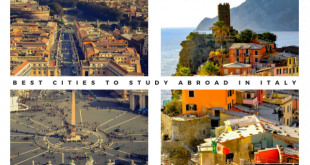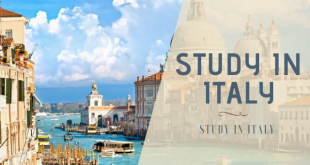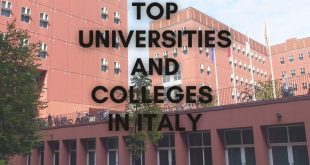The cost of living in Italy may be lower than in other countries in Europe. This lets many international students ask how to obtain a study visa in Italy to continue studying there.
At first, higher education institutions in Italy specify their own tuition fees.
However, in the case of university education, there is a minimum statutory and a minimum for registration which cannot exceed 20% of state funding.
Even so, PhD students with scholarships don’t pay tuition fees I.e. accommodation, library, and other fees. Nevertheless, non-scholarship holders have to pay tuition fees for their university.
At this point, you’d want to check our article about scholarships in Italy.
Table of Contents
University tuition fees in Italy
Public universities in Italy have their tuition fees according to the level of degrees and study program. The average tuition fee ranges between 850 and 1,000 Euros (annually), and tuition fees in prestigious public universities in Italy may exceed 1,000 Euros annually.
Tuition fees in private universities
The average tuition fee in private universities ranges from 6000 to about 20,000 euros per year. The fees charged by private universities in Italy are usually higher compared to public universities.
Low cost universities in Italy for international students
Here is a list of some Italian universities that offer an affordable education fee:
- University of Siena : The average tuition fee is 1,800 euros per year.|
- Bozen-Bolzano Free University: The average tuition fee is 2,200 euros per year.
- University of Turin: The average tuition fee is 2,800 euros per year.
- University of Bajova: The average tuition fee is 4,000 euros per year.
Tuition fees in the best Italian universities
Having got to know the best universities to study in Italy, it may be helpful for you to get an idea about the average tuition fees in well-rated Italian universities.
- The University of Applied Arts in Milan: The average tuition fee is 3,300 euros (annually).
- University of Bologna: The average tuition fee is 2,100 euros (annually).
- University of Trento: The average tuition fee 6,000 euros (annually).
- Santana Graduate School of University and Advanced Studies: The average fee of 4,000 euros (annually).
Check also our list of the best universities in Italy for international students
Cost of living in Italy for students
The total cost of living for students in Italy ranges from 600 to 900 euros a month, including accommodation, food costs, public transportation, and local travel or leisure.
Also, the cost of living in Rome is slightly more expensive compared to the rest of the other Italian cities. The cost of living in other cities in Italy ranges from:
- Bologna: around 750 to 1,000 euros per month.
- Florence: around 850 to 1200 euros per month.
- Milan and Rome: between 900 and 1400 euros per month.
Living and housing in Italy
The percentage of international students living in student halls is 2%, while the rest choose other housing options. Also, regardless of where they live, 75% of students are very satisfied with their place of residence.
Students who live in housing pay between 250 and 300 euros a month. Finally, students who live alone pay 400 euros a month.
Read also our article on how to get student accommodation in Italy
Transportation costs
Public transportation is the easiest and most convenient way to travel across Italy. For students, there are options available for transportation such as the bus using the monthly ticket, tram.
Similarly, the metro cost ranges between 25 and 35 euros per month, depending on the city. The train network in Italy is fast and well maintained.
The prices start at 20 euros per trip, and you can get discounts of up to 70% if you book previous tickets.
Finally, you can do a bike rental for €2.50 per day or at least €6 per week in Milan and some other Italian cities.
Food cost
As an international student in Italy, a country famous for its cuisine, you will spend a little more than anywhere else for food. Thus, eating will cost you around 150-200 euros per month while buying for groceries from local supermarkets. You can go to affordable places like Esselunga, Pam or Lidl to get fairly good products at affordable prices.
However, you can also try local markets, where you can shop for quality and fresh food at very reasonable prices. Eating out in Italian restaurants will cost you up to 15 euros for antipasto course and up to 16 euros for pasta dishes. Keep in mind that they will charge you an extra 1 to 2.50 euros for the bread and cover, therefore takeaway might be a cheaper option if you can.
Another tip to help you save money: make use of the university cafeteria and street food. If you don’t have time to cook, these are much cheaper options.
Additional costs
The monthly costs for phone and other utility bills can be up to €140. In addition, expect to spend €30-€40 per week for the costs of social activities and entertainment, and between €40 and €50 per month for books and other educational materials.
At last, here are our Top 10 Tips for international students in Italy.




 Aljawaz Your guide to study abroad
Aljawaz Your guide to study abroad












Greetings. i wanted to apply for FOOD PRODUCTION in the university of cattolica and wants to know the tuition fee and cost of living for one year for international student?
food production
Hi Alieu,
Indeed, the university of Cattolica provides a course on food production management, and you can contact the university directly to know the exact tuition fees depending on the degree you need.
The cost of living for international students in Italy ranges from 600 to 900 euros a month.
Good luck